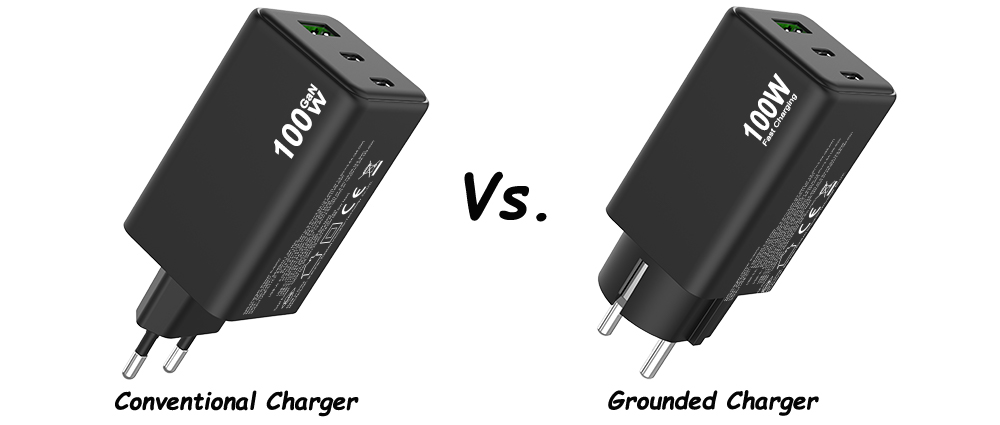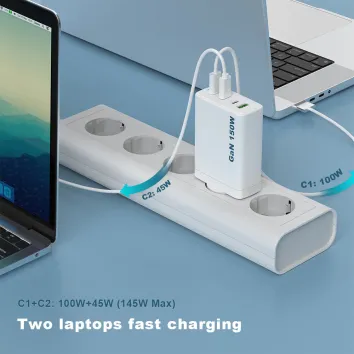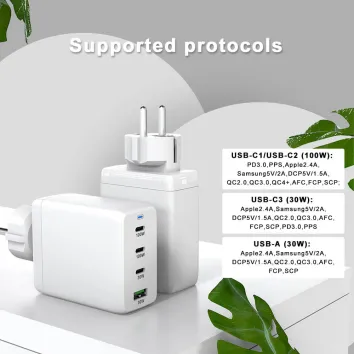Understanding Grounded Plug Chargers Their Uses and Importance
When it comes to charging safety, grounded plug chargers are critical. But what exactly are grounded plug chargers? And why should enterprises, OEM buyers, and charger brands care about them? In this guide, we'll detail the basics of grounded plug chargers, how they work, their key benefits, and why they're important - especially for enterprise-level or high-power charger applications.
⚙️ What is a grounded plug charger?
Common grounded plug chargers use a three-prong AC plug, with the third prong serving as a ground connection. This grounding line provides an additional path for current to return safely to ground in the event of a fault, helping to protect users and connected devices. The European/Korean grounded chargers (two-pin prongs) are designed and differentiated on the charging head according to the round hole specifications of the power strip socket, and the flat plug is changed to a round plug (grounded) to distinguish them.
Grounded chargers are different from non-grounded (two-pin) chargers, which do not have this safety path.
✅ Grounded chargers are especially important for high-power chargers (e.g. 100W-240W), desktop chargers, and chargers used in industrial or commercial environments.

🛡️ Importance of Grounding: Key Benefits
1. Enhanced Electrical Safety
·Prevents electric shock due to insulation breakdown.
·Reduces the risk of damage from surges or lightning strikes.
2. Equipment Protection
·Protects sensitive electronic devices such as laptops, tablets, and docking stations.
·Ideal for corporate environments with multiple charging ports.
3. Complies with regional safety standards
·Many regions (e.g. Europe, South Korea, Middle East) require chargers above a certain power to comply with grounding standards.
·Helps meet CE, KC, ETL, and UL certifications.
💼 Where are grounded chargers typically used?
| Application | Reason |
| Laptop Chargers(e.g., 100W-240W PD3.1) | Grounding needed due to high power |
| Desktop Chargers with Multiple Ports | Used in Offices and data centers |
| OEM/ODM Projects for Export to Europe/KR | Compliance with grounded plug requirements |
| Chargers for Power-Hungry Devices | Extra protection from electrical overload |
🔍 Grounded vs. non-grounded chargers
| Features | Grounded Charger | Non-grounded Charger |
| Safety Level | Higher | Basic |
| Ues Case | Higt-power devices, commercial use | Smartphones, travel use |
| Certification | Often required for CE, KC, ETL | May be optional |
🏭 Why charger brands and wholesalers should care
If you are a charger factory, OEM charger brand, or charger wholesaler, providing a grounded plug option is critical for:
🔧 Complying with safety regulations in global markets
🚚 Providing power adapters for enterprise and commercial use
🔌 Supporting high-power fast chargers with PD3.1 or GaN technology
🏷️ Boosting product listings with safety features
🔗 Related Articles You May Like
·Standard Chargers vs. Non-Standard Chargers
·GaN Charger vs PD Charger: What’s the Difference?

Read More

Read More

Read More

Read More